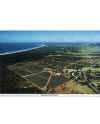|
|
Natures Gold Co-operative Limited grow, harvest and distill a range of essential oils on the Northern Rivers area of New South Wales at Tyagarah.
It carries forward the business established by Queensland Essential Oils Limited that started in 1995 and suffered in the downturn in the Tea Tree oil industry in 1999. A group of QEOL farmers identified the area in Tyagarah as the place to continue their farming activities and to focus on the other essential oils that are profitable to produce.
Review of Operations Contact Natures Gold
|
The Queensland Essential Oils (QEOL) Tea Tree Project, which was managed by North Queensland Tea Tree Farms Ltd and North Queensland Tea Tree Farms No 2 Ltd (NQTTF), has suffered from the over-supply of oil in the market place and the subsequent downward spiral of the wholesale price of tea tree oil. It became apparent during September 1999 that for the QEOL Growers to remain in business, there needed to be an entire re-think of the position for Growers and their relationship with any financier that had funded them as tea tree oil producers. The following extract from the December 1999 financials of QEOL reflect the position that QEOL and the Growers were in:-
At the end of the wet season 1999 on the Atherton Tablelands, QEOL entered into a distilling contract with The Oil Fields Pty Ltd potentially one of Australia’s largest producers of Tea Tree oil. We negotiated a fee of $14.00 per cubic metre of bio-mass processed through the facility and agreed a schedule of distilling which saw QEOL processing to full capacity at around 350 cubic metres per day. This was as fast as two and sometimes three harvesting contractors could bring material to the distillery for processing. It also required three bin haulers working ten hour shifts and a prime mover making between 6 and 7 visits a day to the distillery delivering material in 62 cubic metre loads. The by-product of this activity saw a mountain of spent tea tree mulch accumulating at the distillery growing at the rate of about 100 tonnes a day. Whilst this was going on QEOL was also growing seedlings for The Oil Fields and had a contract to supply 2,000,000 seedlings at $0.08c per seedling. Seedlings were being prepared in batches of 200,000 – 300,000 at a time. QEOL extended the nursery to cater for this activity and to grow seedlings for NQTTF farmers to plant out the second property that was being prepared. QEOL paid a deposit for the purchase of the second property during Easter 1999. The directors of QEOL made a decision to leave the harvest of NQTTF farms until The Oil Fields had finished their harvest or the first week of August, whatever came first. This decision was taken on the basis that the cash flow from Oil Fields was meeting our running costs and providing a reserve of capital. Additionally, the price of oil was under pressure because of a surplus of oil in Europe, and our buyers were cautious about purchasing earlier in the year. The trees would also benefit from some extra months growing before they would be harvested. During this time arrangements were made to purchase an additional tractor with purpose built narrow wheels to enable a clearance over the trees as they grew so that weed control and fertilizers could be applied on demand. Significant Changes in State of Affairs Following the end of the financial year 1999 Oil Fields reported to QEOL that they were having trouble purchasing sufficient storage drums to continue harvesting and distilling. We took the opportunity to do some maintenance work on machinery that was showing signs of over-use. After a further 3 weeks Oil Fields announced that they were able to go back to work and we agreed to, subject to them paying their outstanding invoices which amounted to about $80,000.00. They advised they would attend to the outstanding invoices soon as we started distilling again. We refused. As their invoices were invariably for amounts of $25,000 every six days, and they had just taken delivery of some seedlings it only took two and half weeks to discover that QEOL was going to suffer cash-flow problems itself if it could not help get Oil Fields back to work, to pay their invoices and to continue to provide cash flow for QEOL. Following the harvest of NQTTF farms the cash available from the sale of oil is still outstanding but is expected to barely cover the cost of production. At time of writing the future for QEOL is uncertain as it has no cash to settle accounts other than to sell off any assets.
Buslet Pty Ltd The directors of NQTTF resigned as Farm Managers during September 1999 and recommended to the Growers that as an alternative farm manager had come forward (Buslet Pty Ltd) the Growers should adopt Buslet as their new Farm Manager. Buslet's plan was four fold.
Buslet entered into Heads of
Agreements with all the necessary parties to put in place all four
steps of their plan. Buslet has acted as agent for Natures Gold
Co-operative Limited - who will take over the role that Buslet
started as Manager of the Growers farms. The picture on the
left shows the plantation that t The land that Natures
Gold Co-operative is developing for its members has reached the
stage where stock varieties have been tested and orders for
seedlings have been placed. These seedlings will go in the soils on
the new property that is appropriate for the different species
that have been selected. Plant selection has been carried out with
the emphasis on oils that are used in fragrances and flavourings in The photograph on the right is taken on the property of Byron Bay Essential Oils and shows the good growth of the tea trees. In the foreground is Gwen Lewis who has been responsible for deliveries and despatch of the oils together with quality control in the distillation process. As at 28th February 2002, Buslet/Nature's Gold has received $128,000.00 in management fees from Growers who had accepted Buslet's management services. Cash at bank as at 28th February 2002 is $5,200.00 credits debits balance $0.00 Deposits from Growers $197,200.00 $197,200.00
Sub-total $192,000.00 $5,200.00
With 6 species of essential oil plants being planted around Easter 2002 and a further 4 species after Winter 2002 the new farm at Tyagarah is on track for a harvest before Christmas 2003. The current market price for the 10 varieties of oil that is being produced on the farm range up from $26 per kilo for Citriodora to around $400 per kilo for Anisata. As no one can predict what the price of any one oil will be into the future our farm managers' plans for planting a wide variety looks to be a sound practice. Some of the varieties do better in the lower parts of the property which is prone to flooding whereas the Anisata, in particular, prefers being planted on a slope and is clipped rather like a hedge. The new road passing the farm is nearing completion with traffic flowing on half of the road. Once completed, the travel time from the Tweed Valley will be reduced to just over an hour.
On a recent trip to
South Africa, Nature's Gold member, Keith Platt (pictured right),
visited one of the factories that process our tea tree oil into a
finished product. The factory was in a suburb of Johannesburg To the left is a photo of Burnshield's production manager with one of our drums of oil. The factory employs a work force of 44 (mainly black Africans) who manufacture and package all of Burnshield's products.
|










